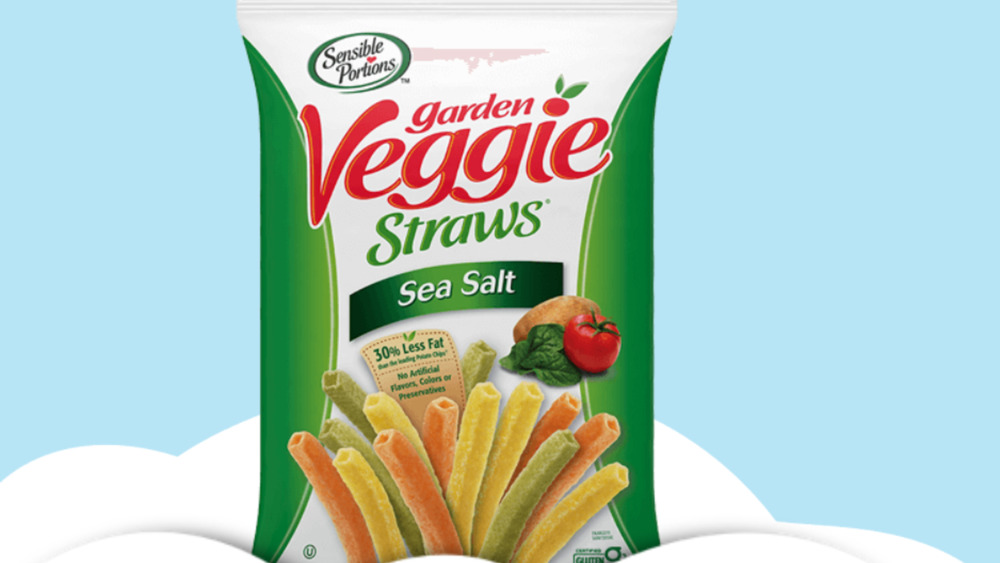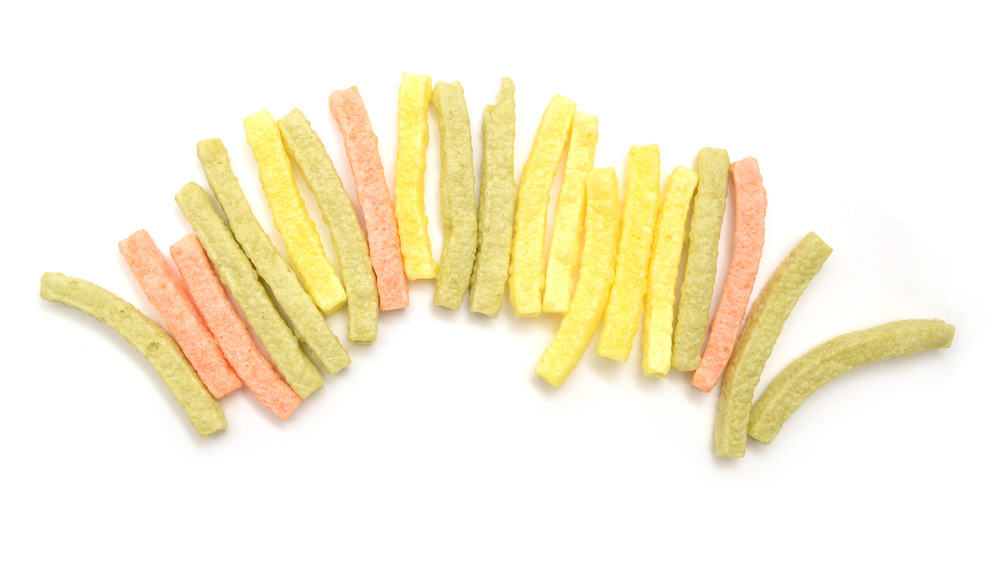How Garden Veggie Straws Almost Got Sensible Portions Sued
Garden Veggie Straws are a crispy, airy snack that are designed to satisfy customers' desire for a crunchy treat. They are often promoted as a healthier alternative to potato chips, a claim that is supported by the depictions of fresh tomatoes, spinach, and potatoes on the packaging. According to the Sensible Portions website, the "airy, crunchy Straws combine garden-grown potatoes and ripe vegetables to form a better-for-you snack that has 30% less fat than the leading potato chip and allows for 38 straws per serving."
However, despite what the Sensible Portions website claims, these straws are far from healthy. Their main ingredients are potato starch, potato flour, and canola oil. They contain only small amounts of spinach powder and tomato paste, and no real vegetables. However, they do pack seven grams of fat, 130 calories, and 17 grams of carbohydrates into a single one ounce serving, while offering little to no fiber, protein, or other healthy nutrients.
In 2017, John Solak and Jim Figger brought a suit against Hain Celestial Group, the parent company behind Garden Veggie Straws, for the deliberately misleading advertising of the product. According to the New York Post, the two men claimed that the snack's packaging was intentionally misleading and they "do not contain any of the actual vibrantly depicted vegetables." Their lawyer, Sergei Lemberg, added: "This is an important lawsuit because the advertising dupes unsuspecting consumers, who are frequently children, into thinking that they are eating veggies."
The court ultimately dismissed the case against Hain Celestial Group
However, while misinformed consumers may be under the impression they are grabbing a healthy snack while reaching for Garden Veggie Straws, the court ultimately dismissed the case, saying Hain Celestial Group's advertising was not unreasonably misleading. According to Mondaq, the United States District Court for the Northern District of New York stated "plaintiffs must allege more than a mere possibility that the advertisement might conceivably be misunderstood by some few consumers viewing it in an unreasonable manner."
The court went on to say that the packaging and description of the product as a "vegetable and potato snack...fairly and accurately describes the most prevalent ingredients used to manufacture the Straws." Ultimately, the court declared the company had made "no explicit claims as to any of the Straws' specific characteristics," and therefore could not be held responsible for deliberately misleading their consumers.
In short, consumers should always take advertising claims with a grain of salt, and no matter how healthy something may seem, it's worth taking the extra time to check the nutrition facts on the label. Or to put it even more simply: caveat emptor.

